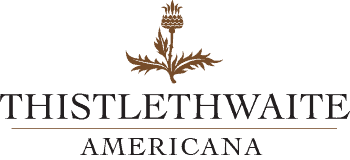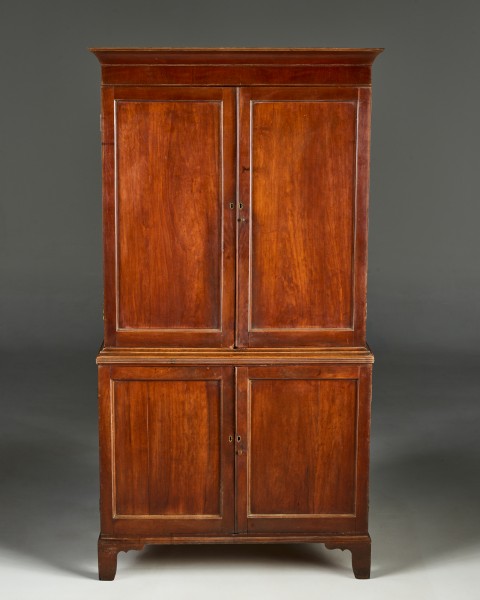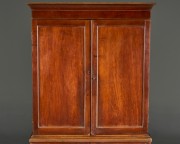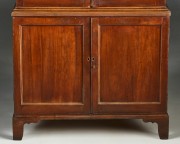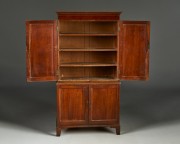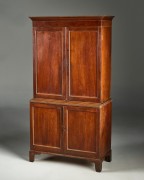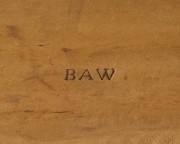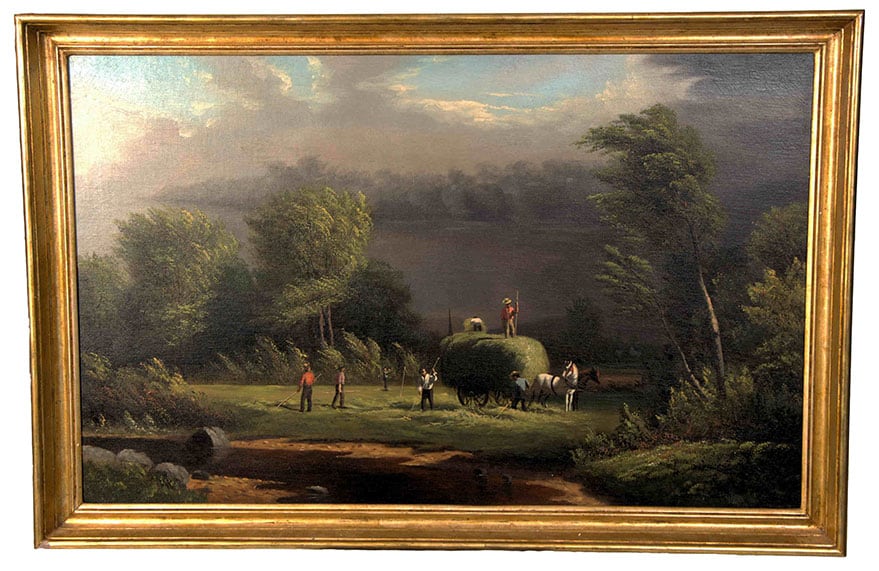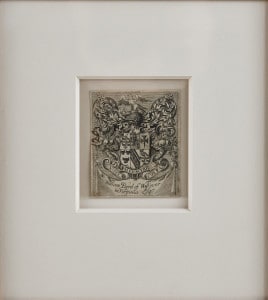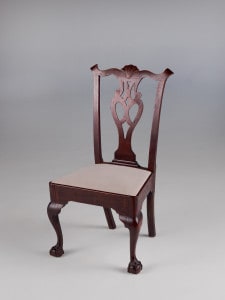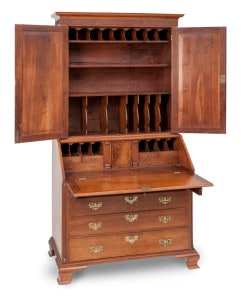
Inventory
Virginia China Press
Book or China Press
Cherry
Lynchburg Virginia
Branded “BAW” top of lower case for cabinetmaker Benjamin A. Winston
Circa 1790
79” H, 41.5” W, 19” D
This press is testimony to the continued preference of Virginians for the “neat and plain’ aesthetic and the conservative tastes of piedmont patrons. Lynchburg was a thriving city at the beginning of the 19th century and was claimed by Thomas Jefferson to be the second most prosperous in the state. The press is constructed in three sections, base with single shelf, upper case with three shelves and a crossbanded cornice as was common practice among Lynchburg shops. The secondary woods are primarily poplar. The press exhibits the restrained stylistic moldings, cockbeading and proportions with a minimum of elaboration characteristic of English forms long preferred in eastern Virginia.
Benjamin A. Winston was among the growing city’s artisans and established his shop around 1800. Winston has proven difficult to trace but was probably originally from Connecticut and relocated to Lynchburg along with Allanson Winston (1794- ) also a cabinetmaker who was presumably younger and a kinsman. It was most likely Benjamin who was partner in the Lynchburg firm of Lawton and Winston that advertised for two journeymen cabinetmakers in 1799 in Norfolk and Richmond. He is documented as operating a cabinet shop on Lynch Street measuring 32’ x 20/5’ with an attached shed that was recorded in Lynchburg fire insurance records. He leased the property for six years beginning in 1804 from Samuel Irvine. 1809 he took on an apprentice suggesting that he expected to remain active for at least several more years.
The press dates to the last few years of the 18th century or first decade of the 19th and was likely produced by Benjamin in this shop and bears his boldly branded initials on the top board of the lower case. Benjamin presumably remained in the cabinet business into the 18 teens since census records show him in Lynchburg 1810 with a household of four white males, two under sixteen, and one slave. Records show that he and was paid in 1813 for a coffin. By the end of the decade, Benjamin seems to have relocated to Nelson County and probably gave up the cabinet trade in favor of farming. In 1836 her married widow Letitia Booker who died about a year later in August 1837. Her will was probated in Amherst County.
The extent of a business or personal tie between Benjamin and Allanson remains unclear. Allanson first advertised his business in Lynchburg newspapers in 1816 along with (Samuel ?) Duigud as “Cabinet Makers / Upholsterers and Undertakers”. The partners offered for sale a wide variety of furniture, furnishings and specifically Windsor Chairs.
